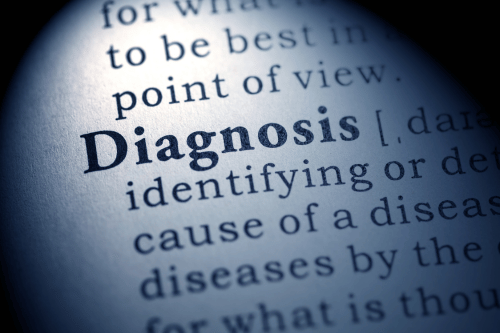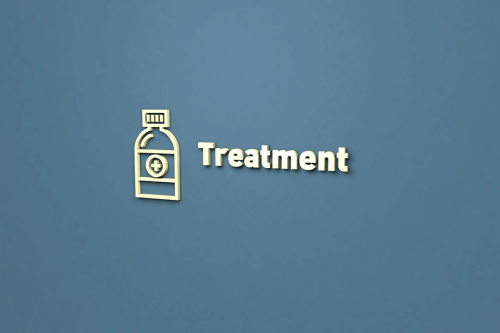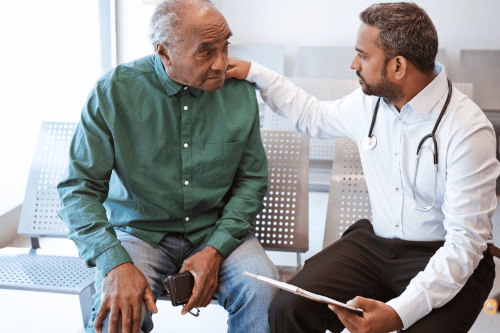

When someone struggles with both a mental disorder and substance abuse, dual diagnosis treatment centers provide specialized care. These centers focus on treating addiction and mental health at the same time. By addressing both conditions together, patients have a better chance of achieving long-term sobriety and reducing relapse risk.
Dual diagnosis occurs when substance abuse and mental health conditions overlap in the same patient. Alcohol addiction treatment may be required when alcohol abuse is paired with depression, while stimulant misuse such as methamphetamine often appears alongside bipolar disorder or panic disorder. Other cases involve opioids, benzodiazepine, or compulsive behavior tied to mood disorder, schizophrenia, or attention deficit hyperactivity disorder.
The Substance Abuse and Mental Health Services Administration (SAMHSA) reports that comorbidity is linked to higher relapse rates and worsening signs and symptoms when left untreated. Sleep problems, appetite loss, social isolation, grief, anger, and sadness often make daily life harder. Early screening by a mental health professional or physician improves diagnosis and helps connect patients with evidence-based addiction treatment programs.

Dual diagnosis treatment centers combine drug rehabilitation, therapy, and relapse prevention into one integrated treatment model. These centers address addictive behavior and compulsive behavior by using psychiatry, psychotherapy, and cognitive behavioral therapy to stabilize mental disorder while treating substance use disorder. Residential treatment centers or partial hospitalization (PHP) programs may be recommended for patients needing structured care and 24-hour health professional oversight.
For patients who require flexibility, intensive outpatient programs (IOP) and intensive outpatient treatment options are available. Community resources such as Alcoholics Anonymous, SMART Recovery, and recovery coaching provide peer support and promote abstinence. Addiction treatment centers also incorporate family therapy, education, and life skills training to help patients and parents rebuild relationships while improving stress management.
Treatment dual diagnosis programs rely on psychotherapy methods like cognitive behavioral therapy (CBT), dialectical behavior therapy (DBT), and acceptance and commitment therapy (ACT) to treat both mental disorder and substance abuse. Motivational interviewing helps patients improve insight, reduce impulsivity, and increase motivation for sobriety. Eye movement desensitization and reprocessing (EMDR) is often used for trauma-related disorders.
Alternative medicine approaches such as acupuncture, yoga, and meditation reduce stress, anger, and panic. Adventure therapy, art therapy, and psychoeducation provide patients with coping strategies, distress tolerance, and social connection in a natural environment. Crisis intervention and psychiatry may be needed when suicidal ideation, psychosis, or severe drug withdrawal is present, ensuring safety through immediate inpatient care if necessary.
Many patients in dual diagnosis rehab live with depression, major depressive disorder, or generalized anxiety disorder. Panic disorder, bipolar disorder, schizoaffective disorder, and social anxiety disorder are also common. Eating disorders like anorexia nervosa and binge eating disorder frequently appear with alcohol abuse or drug misuse.
Without treatment, these conditions affect the brain, behavior, and lifestyle, increasing risk factor levels such as irritability, stress, and impulsivity. Genetics, environment, and health policy factors also influence how substance use disorder develops alongside mental illness. Addiction treatment services at a recovery center provide integrated treatment for both the root cause and substance use, improving quality of life, hygiene, nutrition, and overall health.

Medication plays a central role in dual disorder treatment and relapse prevention. Physicians, psychiatrists, and psychologists may prescribe antidepressants for sadness, anti-anxiety medicine for panic, or antipsychotics for schizophrenia. For patients with opioid or fentanyl addiction, medication-assisted treatment with methadone, buprenorphine, or naltrexone helps reduce cravings and support abstinence.
For alcohol addiction treatment, medication can ease withdrawal symptoms and lower relapse risk. Benzodiazepine or stimulant withdrawal, including methamphetamine, requires close medical management and detoxification to prevent dangerous complications. Health insurance, Medicaid, Medicare, or private policy coverage helps patients access addiction treatment programs in states like California, New Jersey, Texas, Kentucky, Ohio, Michigan, Tennessee, and North Carolina.
Relapse prevention is a central part of dual diagnosis treatment. Patients learn stress management, anger management, and coping skills. Therapy programs address risky situations, triggers, and risk factors such as genetics, environment, and lifestyle.
Sobriety is supported through abstinence programs, alcohol addiction treatment, and outpatient therapy. Social work, peer support, and psychoeducation give patients the information and tools needed for recovery. Privacy and privacy policy protections ensure that treatment centers respect confidentiality during care.
Treatment centers offer a continuum of care. Inpatient care provides 24-hour supervision, detox, and psychiatric support. Partial hospitalization and residential treatment centers offer structured schedules with therapy, group support, and medical oversight.
Outpatient rehab, such as dual diagnosis programs, gives patients flexibility. A patient may step down from inpatient care to IOP or PHP as symptoms improve. Dual rehab centers near me and dual treatment centers near me searches often highlight facilities offering integrated care across all levels.

Family therapy helps parents and loved ones understand substance use disorder, mental health conditions, and addictive behavior. Education from clinicians and mental health professionals improves communication, reduces fear, and supports relapse prevention through coping strategies and stress management. National Alliance on Mental Illness (NAMI) programs also provide education and psychoeducation for families facing dual diagnosis.
Peer support networks like Alcoholics Anonymous, SMART Recovery, and recovery coaching encourage abstinence and accountability. Veterans Health Administration programs connect service members to care, while criminal justice partnerships expand access to intervention, screening, and treatment centers. Community involvement fosters pride, motivation, and long-term sobriety by reducing social isolation and strengthening support systems.
When choosing a dual diagnosis treatment center, accreditation from the Joint Commission is an important risk management step. Accreditation confirms adherence to health policy, patient privacy policy, and national safety standards. American Addiction Centers, Red Oak Recovery, and other accredited treatment centers follow guidelines supported by the Substance Abuse and Mental Health Services Administration (SAMHSA).
Accredited treatment programs combine psychology, psychiatry, and psychotherapy with alternative medicine such as yoga, acupuncture, and meditation. Care is provided by psychologists, psychiatrists, clinicians, and health professionals trained in psychiatry and social work. Dual disorder treatment centers are available in California, Texas, New Jersey, North Carolina, Kentucky, Michigan, Tennessee, Ohio, Los Angeles, and San Francisco, ensuring patients have access to evidence-based integrated treatment.
Dual diagnosis rehab often provides programs for adolescents, veterans, parents, and patients struggling with eating disorders or mood disorders. Conditions like anorexia nervosa, binge eating disorder, and compulsive eating frequently appear alongside alcohol abuse, stimulant misuse, or opioid addiction. Specialized dual disorder treatment addresses both substance use disorder and co-occurring conditions like bipolar disorder, panic disorder, or generalized anxiety disorder.
Patients with trauma, grief, sadness, or social anxiety benefit from therapies like eye movement desensitization and reprocessing (EMDR) and acceptance and commitment therapy (ACT). Adventure therapy, art therapy, spirituality, and mindfulness programs support distress tolerance and help patients heal in a natural environment. These programs reduce anger, fear, and impulsivity while promoting resilience, life skills, and insight.
Recovery from substance abuse and mental health challenges requires time, education, and structured addiction treatment services. Length of stay varies based on severity, patient diagnosis, and comorbidity. Dual diagnosis treatment centers may offer residential treatment, partial hospitalization (PHP), or outpatient care, with follow-up therapy continuing for years.
Improving quality of life involves focusing on nutrition, sleep, exercise, and hygiene to restore energy, appetite, and mood. Recovery coaching, peer support, and psychoeducation teach coping skills for managing stress, anxiety, and depression. With ongoing therapy, motivational interviewing, and relapse prevention planning, patients build lifestyle stability and achieve long-term sobriety.

Dual diagnosis treatment centers provide patients with integrated treatment that addresses both substance abuse and mental health. These programs combine addiction treatment services, relapse prevention strategies, and peer support systems such as Alcoholics Anonymous, SMART Recovery, and community therapy groups. Whether dealing with alcohol addiction treatment, opioid misuse, or stimulant-related issues like methamphetamine, treatment dual diagnosis programs give patients the resources to manage addictive behavior and mental disorder together.
Accredited treatment centers in California, New Jersey, Texas, Kentucky, Michigan, Tennessee, North Carolina, Ohio, and Los Angeles follow standards set by organizations like the Joint Commission and the Substance Abuse and Mental Health Services Administration. Patients benefit from access to psychiatry, psychotherapy, family therapy, and specialized therapies such as dialectical behavior therapy, motivational interviewing, and eye movement desensitization and reprocessing. Dual rehab centers near me and dual disorder treatment centers offer personalized care, whether through residential treatment centers, partial hospitalization (PHP), or intensive outpatient programs.
By working with health professionals, psychiatrists, and psychologists, patients receive proper diagnosis, medication management, and coping strategies. Health insurance, Medicaid, and Medicare often cover portions of addiction treatment programs, helping families manage costs. With ongoing support, recovery coaching, and relapse prevention, patients can reduce stress, build life skills, and improve quality of life. The right addiction treatment center fosters long-term sobriety, emotional stability, and a healthier future through comprehensive dual diagnosis rehab.
At Sullivan Recovery, as an in-network provider we work with most insurance plans, such as:
And More
If you or a loved one are struggling with mental health challenges or substance abuse, reach out to Sullivan Recovery today. Our team of compassionate professionals is here to support your journey towards lasting well-being. Give us a call at 949-836-7180.
Dual diagnosis treatment centers focus on both mental health and addiction, so relapse prevention plans address triggers from both areas. Patients receive coping skills training, psychiatric support, and ongoing therapy to reduce the risk of relapse. This dual focus makes relapse management more effective than programs addressing addiction alone.
Many dual diagnosis treatment centers accept private health insurance, Medicaid, and Medicare. Coverage often depends on the patient’s diagnosis, the length of stay, and whether services are inpatient or outpatient. Contacting the treatment center directly helps confirm benefits and policy details.
Yes, most dual diagnosis treatment centers include family therapy or education sessions. These programs help parents and loved ones understand substance use disorder and mental health conditions. Involvement improves communication, reduces fear, and supports the patient’s recovery journey.
Traditional mental health facilities focus on psychiatric care, while dual diagnosis centers integrate addiction treatment with mental health therapy. Patients receive medication management, detox support, and therapy for both conditions. This combined approach improves outcomes for individuals with co-occurring disorders.